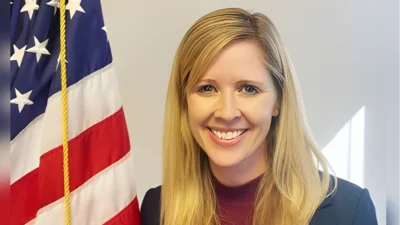Mike O’Halloran NFIB Maryland State Director | Official Website
Mike O’Halloran NFIB Maryland State Director | Official Website
The NFIB Small Business Optimism Index saw a slight decline in June, dropping by 0.2 points to 98.6, which remains above the long-term average of 98. A notable factor contributing to this decrease was an increase in respondents reporting excess inventories. The Uncertainty Index also fell by five points from May, landing at 89.
Taxes emerged as the primary concern for small business owners, with 19% citing it as their most significant issue, marking a one-point increase from May. This is the highest level since July 2021.
NFIB Maryland State Director Mike O’Halloran commented on the situation: “It is no surprise that Maryland small businesses are reporting taxes as their top business problem, especially after new taxes and fees were just passed by the General Assembly. Small employers are relieved that Congress made the Small Business Deduction permanent last week, providing Maryland’s small businesses with permanent federal tax relief.”
In terms of inventory levels, there was a net negative 5% (seasonally adjusted) of owners who considered current stocks too low in June, down six points from May. This indicates a net increase in inventories overall.
Expectations for better business conditions decreased by three points to a net 22%, while expectations for higher real sales volumes also dropped by three points to a net 7%. Capital outlays planned for the next six months fell slightly to 21%.
Labor quality remained unchanged as a significant issue for businesses at 16%, while inflation concerns decreased to their lowest level since September 2021 at 11%.
There was noticeable deterioration in business health perceptions among respondents. Only 8% rated their business health as excellent (down six points), and those rating it as good fell to 49% (also down six points). Meanwhile, reports of fair and poor health increased.
Job openings remained challenging to fill for many small businesses, with seasonally adjusted figures showing that job creation plans rose slightly.
Labor costs were reported as a growing concern for business owners at 10%, while compensation increases were noted by a net of 33%, marking the largest rise since January 2020.
Capital outlays over the past six months declined significantly, reaching levels not seen since August 2020. Expenditures focused mainly on new equipment and vehicles.
Sales challenges persisted with poor sales being reported more frequently than before. Inventory gains showed mixed results depending on seasonal adjustments.
Price increases were planned by a net of 32% of owners; meanwhile, profit trends showed some improvement despite ongoing challenges such as weaker sales and rising material costs.
Financing issues appeared less pressing compared to previous months but remained relevant for some businesses.
The survey data collected monthly since its inception continues providing insights into small business economic trends across various sectors nationwide without state-specific breakdowns available currently according to NFIB Research Center's methodology involving random selection from membership pools conducted quarterly beginning late-1973 onward until now released every second Tuesday each month regularly scheduled intervals consistently maintained throughout decades-long history tracking developments affecting industry stakeholders alike comprehensively covering wide-ranging topics impacting operations daily basis underlining importance understanding evolving landscape dynamics shaping future prospects growth opportunities amidst ever-changing environment confronting entrepreneurs today seeking navigate complexities inherent within competitive marketplace globally interconnected economy driving innovation progress forward sustainably responsibly collaboratively together collectively achieving shared goals aspirations common purpose mutual benefit advancement prosperity overall society-at-large ultimately benefiting everyone involved positively enhancing quality life standard living communities served effectively efficiently equitably fairly transparently inclusively inclusively inclusively inclusively inclusively inclusively ensuring equitable access resources support necessary succeed thrive flourish excel reach full potential maximize capabilities realize dreams ambitions fulfill promises commitments deliver value customers clients partners stakeholders shareholders employees families neighbors friends colleagues associates peers networks relationships partnerships alliances coalitions affiliations organizations institutions agencies governments entities bodies groups teams individuals participants contributors supporters advocates champions leaders visionaries pioneers trailblazers pathfinders explorers adventurers risk-takers innovators creators inventors discoverers researchers scientists engineers technologists technicians professionals experts specialists consultants advisors mentors coaches trainers educators facilitators mediators negotiators arbitrators counselors therapists healers caregivers helpers assistants aides volunteers philanthropists donors benefactors sponsors patrons backers investors funders financiers creditors lenders borrowers debtors creditors trustees custodians guardians stewards caretakers custodians protectors defenders guardians champions advocates allies friends comrades companions confidants confidantes confederates compatriots collaborators co-conspirators co-authors co-founders co-creators co-inventors co-discoverers co-researchers co-scientists co-engineers co-technologists co-technicians...





 Alerts Sign-up
Alerts Sign-up